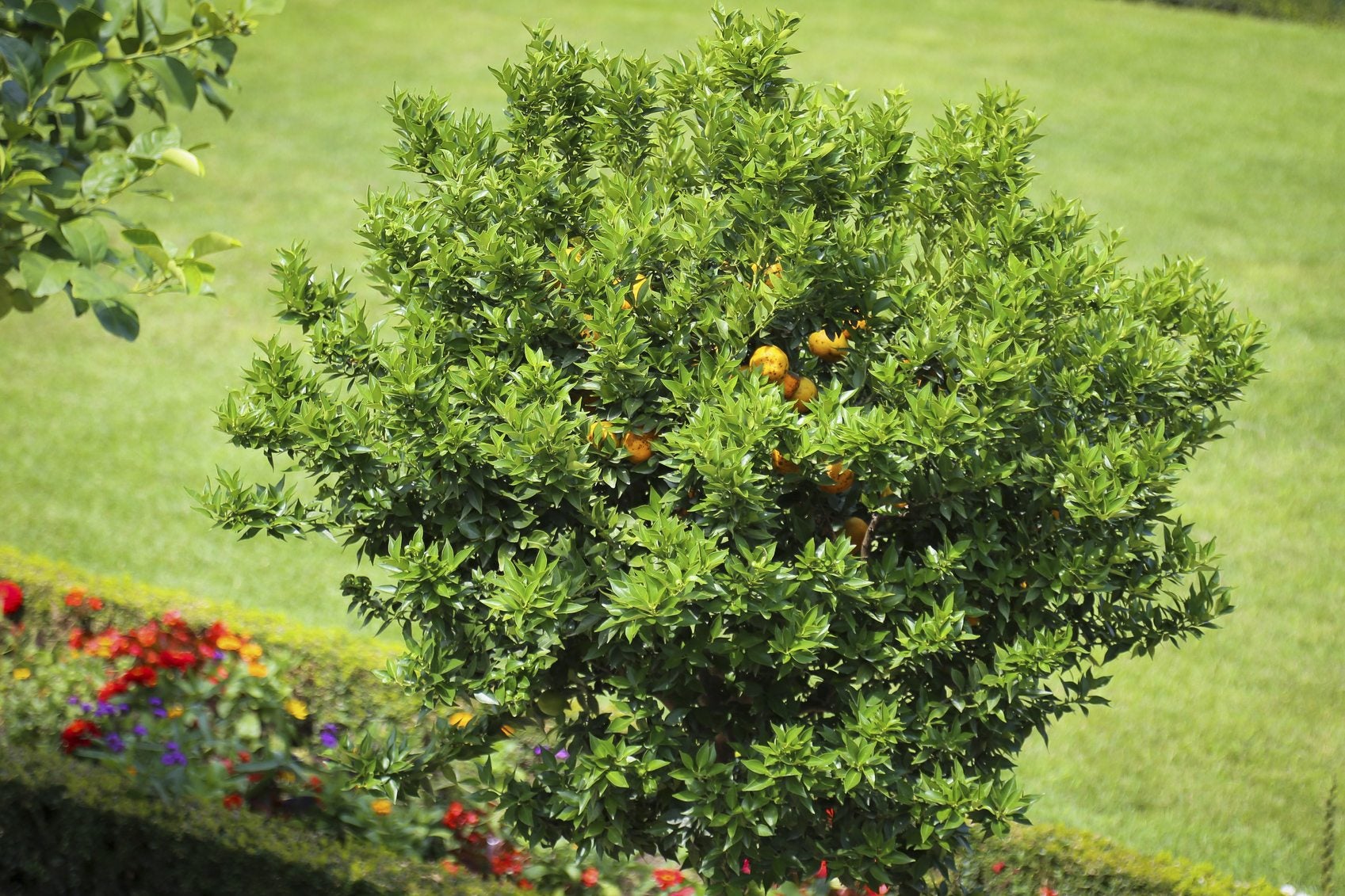Lemon Tree Companions: Tips For Planting Under Lemon Trees


Most lemon trees are suitable for warm-season climates and hardy in United States Department of Agriculture zones 9 to 11. Finding perfect lemon tree companions, therefore, relies upon plants with similar hardiness ranges. Planting under lemon trees can reduce weeds, enhance soil fertility, and reduce the need for pesticides and herbicides. You can also create a handy "kitchen garden" where herbs and other edible plants complement the recipes in which you use lemons.
What Will Grow Under a Lemon Tree?
Lemon trees are very productive and their tart, tangy fruit is a natural source of Vitamin C. Lemon uses in cooking and making beverages abound and their flavor is found in many international cuisines.
What will grow under a lemon tree that will enhance its growth and possibly pair nicely in the kitchen? There are many partner flavors in the herb family as well as several ornamental and edible trees and shrubs that can contribute to a Mediterranean feel in the landscape and make excellent lemon tree understory plants.
Almost any plant that thrives in full sun, well-drained soil, and warm temperatures most of the year can make a great lemon tree companion. Your choice depends upon the style of garden you wish to implement. If you want to create a culinary garden, you should choose edible plants that assist the lemon's growth and accentuate its flavor.
For a Mediterranean-style bed, plants from the same region are best suited. Finally, for strictly ornamental appeal, species that accent the lemon's creamy flowers and deep green foliage, as well as structural tone, will provide the most attractive display. When choosing lemon tree understory plants, be sure they desire the same site and cultural conditions they will be sharing with the tree.
Planting Under Lemon Trees
The "kitchen" garden is simply an easily accessed home grocery store. You should have at hand the herbs and seasonings you most frequently use which grow well in the region. Some herbal companions that complement the lemon's flavor are:
Other herbs serve as deterrents to pests or attract pollinators. Among these, dill is useful attracting beneficial insects that prey upon common lemon pests. Flowering plants have been shown to attract hoverflies, which prey upon mealybugs, a persistent lemon attacker. Common ones include:
Sign up for the Gardening Know How newsletter today and receive a free copy of our e-book "How to Grow Delicious Tomatoes".
The following plants are part of a useful Mediterranean composition:
Lemon flowers and fruit have a distinctive, pleasant scent. If you wish to create an olfactory delight around your lemon tree, install plants with plenty of aromatic presence. For instance, these plants create a symphony of scent that complements the lemon:
Lavender, with its soft bouquet and pastel, purple tones, is a perfect foil for lemon's golden fruit. Sweet peas brighten the area with a tumble of stems and flowers and have the added benefit of returning nitrogen to the soil. Nasturtiums could be part of an edible garden as well and repel some pests. Petunias appear to repel aphids, and marigolds repel both pests above the ground and hidden in the soil. There are many plants to grow under lemon trees that will answer a host of problems while beautifying the garden bed.

Bonnie Grant is a professional landscaper with a Certification in Urban Gardening. She has been gardening and writing for 15 years. A former professional chef, she has a passion for edible landscaping.